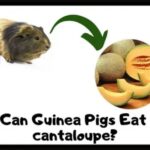Waffles aren’t toxic to dogs, but they aren’t ideal either. High in sugar and carbs, they can lead to weight gain and digestive issues. Toppings like syrup or chocolate can be harmful. If given occasionally, ensure waffles are plain and in small amounts to avoid upsetting your dog’s health. Can Dogs Have Waffles?
Imagine enjoying a warm, crispy waffle for breakfast when your dog gazes at you with those pleading eyes. It’s tempting to share, but is it safe? Before you toss a piece to your furry friend, it’s crucial to understand the potential risks and benefits of feeding your dog waffles.
While waffles are generally safe for dogs in small amounts, they lack nutritional value and can contribute to weight gain and digestive problems. Avoid waffles with harmful toppings like syrup, chocolate, or artificial sweeteners like xylitol, which are toxic to dogs. Always prioritize healthier, dog-friendly treats instead.
Understanding Waffles
Waffles are a popular breakfast food made from flour, eggs, milk, and sugar, often cooked to a crisp texture. While they’re delicious for humans, they’re high in carbohydrates, sugars, and fats.
Which offers little nutritional benefit for dogs. Toppings like butter, syrup, and chocolate can make them even more problematic, posing health risks for your pet.
Ingredients in Waffles
Waffles are made from a simple batter of flour, eggs, milk, sugar, and butter, with optional ingredients like vanilla and baking powder for flavour and texture. Common toppings include syrup, whipped cream, fruit, or chocolate, which can be harmful to dogs.
Typical Waffle Preparations
Waffles are typically prepared by pouring batter into a waffle iron, which creates a crispy exterior and soft interior. They’re often served with toppings like syrup, butter, whipped cream, or fruit, making them a versatile but calorie-dense breakfast option.
Waffle Variations and Additions
Waffle variations include Belgian waffles, known for their deep pockets, and flavoured versions like chocolate, cinnamon, or pumpkin. Additions such as nuts, fruits, or chocolate chips can be mixed into the batter, offering a range of textures and tastes.
Nutritional Aspects of Waffles

Waffles are high in carbohydrates and sugars, providing a quick energy boost but little nutritional value. They also contain fats, especially if made with butter or topped with syrup and whipped cream.
While they can offer some protein and calcium from eggs and milk, the overall nutritional profile is unbalanced, with excessive calories and limited essential nutrients for both humans and dogs.
Nutritional Content of Waffles
Waffles are high in carbs and sugars, with moderate fats and proteins.
| Nutrient | Amount (per waffle) |
| Carbohydrates | 30-40 grams |
| Sugars | 10-15 grams |
| Fats | 8-12 grams |
| Protein | 4-6 grams |
| Calories | 250-350 |
Caloric Value and Impact
Waffles typically contain 250-350 calories each, primarily from carbohydrates and fats. Regular consumption can lead to weight gain and health issues due to excess calories and sugars. This impact is more pronounced for dogs, who have lower calorie needs and different metabolism.
Potential Health Benefits (for Humans)
Waffles can provide a quick energy boost due to their carbohydrate content. When made with whole grains or enriched with ingredients like fruits or nuts, they can offer some dietary fibre, vitamins, and minerals, contributing to a balanced diet in moderation.
Potential Risks of Waffles for Dogs
Waffles can pose risks to dogs due to high sugar and fat content, leading to weight gain and digestive issues. Toppings like syrup, chocolate, or artificial sweeteners are harmful and can cause toxic reactions, making waffles a poor choice for pets.
High Sugar and Fat
Waffles are high in sugar and fat, which can lead to weight gain, obesity, and diabetes in dogs. Excessive sugar can also cause dental problems, while high-fat content may result in gastrointestinal upset and pancreatitis.
Toxic Ingredients
Toppings like syrup, chocolate, and artificial sweeteners (e.g., xylitol) are toxic to dogs. Syrup and chocolate can cause gastrointestinal issues or poisoning, while xylitol can lead to severe health problems, including liver failure and a dangerous drop in blood sugar.
Allergies and Intolerances
Dogs may have allergies or intolerances to ingredients in waffles, such as wheat or dairy. Symptoms can include itching, digestive upset, or ear infections. Even small amounts can trigger reactions, making waffles unsuitable for pets with known food sensitivities.
Possible Long-term Health Effects
Regular consumption of waffles can lead to long-term health issues for dogs, including obesity, diabetes, and dental problems. Excessive sugars and fats can strain the digestive system and contribute to chronic conditions, impacting overall well-being and quality of life.
Safe Alternatives and Moderation
For dogs, choose healthy, dog-safe treats like plain, unsweetened applesauce or carrots. Moderation is key—offer these alternatives in small amounts to avoid overfeeding. Always avoid human foods high in sugar, fat, or harmful additives to ensure your dog’s health.
Dog-Friendly Treats
Commercial Dog Treats
Nutritionally Balanced: Formulated to meet dogs’ dietary needs.
Varied Flavors: Options to cater to different tastes.
Safe Ingredients: Free from harmful additives and toxins.
Controlled Portions: Helps manage calorie intake.
Veterinary Approved: Often recommended by veterinarians for health.
Homemade Treats
Customizable Ingredients: Tailor to your dog’s dietary needs and preferences.
Healthy Options: Use fresh, whole ingredients like lean meats and vegetables.
No Additives: Avoid preservatives, sugars, and artificial flavours.
Cost-Effective: Generally less expensive than store-bought treats.
Simple Recipes: Easy to prepare with basic cooking skills.
Healthy Ingredients for Dogs
The healthy options for dogs such as fruits and veggies and low-fat and low-sugar treats are described as follows;
Fruit and Veggie Options
- Carrots: Low-calorie, high in fibre and vitamins.
- Apples: Provide vitamins and antioxidants; remove seeds.
- Blueberries: Rich in antioxidants and fibre.
- Pumpkin: Good for digestion and low in calories.
- Green Beans: Low-calorie, high in fibre and vitamins.
Low-Fat, Low-Sugar Treats
- Plain Greek Yogurt: Low in fat and sugar; high in protein.
- Boiled Chicken: Lean protein with minimal fat.
- Pumpkin Puree: Low in fat and sugar, aids digestion.
- Sweet Potatoes: Nutritious, low-fat, and naturally sweet.
- Oatmeal: Low in fat and sugar; use plain, cooked oatmeal.
How to Safely Introduce New Foods
Introduce new foods to your dog gradually to monitor for adverse reactions. Start with small amounts and observe for any signs of allergies or digestive issues.
Introduce one new food at a time, wait a few days between additions, and consult your vet if you have concerns.
Signs of Adverse Reactions

The signs of adverse reactions in dogs such as digestive issues and behavioural changes are described below;
Digestive Issues
Digestive issues in dogs from new foods can include diarrhoea, vomiting, or gas. These symptoms may arise from food intolerances or sudden diet changes. If problems persist, discontinue the new food and consult your vet for guidance.
Behavioural Changes
Behavioural changes from new foods might include increased lethargy, irritability, or changes in appetite. These can result from discomfort or adverse reactions to the food. Monitor your dog closely, and if changes persist, consult your vet for advice.
When to Seek Veterinary Advice
Seek veterinary advice if your dog shows persistent symptoms such as vomiting, diarrhoea, or excessive lethargy after trying new foods. Behavioural changes like irritability or decreased appetite can also signal issues.
If your dog experiences allergic reactions, such as itching, swelling, or difficulty breathing, contact your vet right away. Additionally, if you suspect toxicity or if symptoms do not improve with dietary adjustments, it’s important to consult a veterinarian to ensure your dog’s health and safety.
Expert Opinions and Recommendations
Experts recommend avoiding high-sugar and high-fat foods for dogs, as they can lead to health issues. Opt for treats specifically formulated for dogs or natural options like fruits and vegetables. Always introduce new foods gradually and consult a vet for personalized advice.
Veterinarian Insights
Veterinarians advise against feeding dogs human foods like waffles due to potential health risks. They recommend using treats specifically designed for dogs and incorporating safe, healthy options like lean meats or vegetables. Always consult a vet before introducing new foods to your dog’s diet.
Pet Nutritionists
Pet nutritionists emphasize providing a balanced diet tailored to dogs’ specific needs. They advise against high-sugar or high-fat human foods, like waffles, and suggest using high-quality commercial dog treats or homemade options with safe, nutritious ingredients.
Case Studies or Anecdotes
Case studies often show that dogs fed high-sugar or high-fat treats experience weight gain, digestive issues, or diabetes. Anecdotes from pet owners highlight adverse reactions like upset stomachs or allergic responses, reinforcing the importance of choosing appropriate, balanced treats for pets.
Practical Tips for Pet Owners
Following are practical tips for pet owners such as reading labels and ingredients, portion control and frequency and how to offer treats in a balanced diet are thoroughly discussed below;
Reading Labels and Ingredients
Reading labels is crucial to ensure treats are safe for dogs. Check for harmful ingredients like sugar, artificial sweeteners, or allergens. Look for high-quality, natural ingredients and avoid treats with excessive fats or preservatives to maintain your dog’s health and well-being.
Portion Control and Frequency
Portion control and frequency are vital for maintaining a dog’s health. Limit treat intake to small amounts and avoid frequent indulgence to prevent weight gain and digestive issues. Use treats sparingly and ensure they fit within your dog’s overall dietary plan.
How to Offer Treats in a Balanced Diet
To offer treats in a balanced diet, ensure they make up no more than 10% of your dog’s daily caloric intake. Choose nutritious options, adjust meal portions accordingly, and incorporate treats as rewards for training or good behaviour without overindulging.
Myth-Busting and Common Misconceptions
Misconceptions About Human Foods for Dogs
A common misconception is that all human foods are safe for dogs. Many foods, like chocolate or foods high in sugar and fat, can be harmful. It’s crucial to understand which human foods are safe and to consult a vet before sharing.
Debunking Myths
Many believe that all human foods are safe for dogs, but this is false. Foods like chocolate, grapes, and certain artificial sweeteners can be toxic. Always verify which foods are safe and consult your vet to debunk myths and ensure your dog’s safety.
Scientific Evidence vs. Anecdotal Claims
| Aspect | Scientific Evidence | Anecdotal Claims |
| Source | Subjective, based on personal stories and opinions without standardized data | Based on personal experiences or isolated observations |
| Reliability | Highly reliable due to rigorous methodologies and peer review | Less reliable, as they are subjective and may not be representative |
| Scope | Involves large sample sizes and multiple studies for broader applicability | Based on individual or limited experiences, not generalizable |
| Verification | Involves large sample sizes and multiple studies for broader applicability | Not systematically tested or verified, prone to bias |
| Objective vs. Subjective | Objective, relying on data and systematic observation | Subjective, based on personal stories and opinions without standardized data |
Creating a Balanced Diet for Your Dog
A balanced diet for your dog includes high-quality protein, healthy fats, carbohydrates, and essential vitamins and minerals.
Choose commercial dog foods or homemade diets that meet AAFCO standards, adjust portions based on your dog’s size and activity level, and consult your vet for personalized guidance.
Understanding Nutritional Needs
Understanding your dog’s nutritional needs involves providing balanced proportions of protein, fats, carbohydrates, vitamins, and minerals. These requirements vary by age, size, breed, and activity level. Consult your vet to tailor a diet that supports your dog’s health and well-being.
Choosing High-Quality Dog Food
Choose high-quality dog food with real meat as the primary ingredient and avoid excessive fillers, artificial additives, or by-products. Look for brands that meet AAFCO standards and consider your dog’s age, size, and health needs for optimal nutrition.
Consulting with a Veterinarian
Choose high-quality dog food with real meat as the primary ingredient and avoid excessive fillers, artificial additives, or by-products. Look for brands that meet AAFCO standards and consider your dog’s age, size, and health needs for optimal nutrition.
FAQs
Why does my dog love waffles?
Your dog may love waffles because they enjoy the taste and texture, especially if they contain sweet or savoury ingredients. However, waffles aren’t the healthiest treat for dogs, so offer them sparingly.
Can a dog eat pancakes?
Yes, dogs can eat pancakes in moderation, but they should be plain and free of harmful ingredients like chocolate or excessive sugar. Always check for ingredients that could upset their stomach.
Can dogs eat waffles with honey?
Dogs can have waffles with a small amount of honey, but it’s best to limit this treat due to the high sugar content. Too much sugar can lead to obesity and dental issues in dogs.
Can my dog eat waffle fries?
Waffle fries are not recommended for dogs because they’re high in fat, salt, and possibly seasonings that can harm your dog. Stick to healthier treats to keep your dog safe.
Conclusion
In conclusion, while sharing human foods like waffles with your dog may seem harmless, it can lead to health issues due to high sugar, fat content, and harmful additives. Opt for dog-safe treats and consult your vet for personalized advice. Ensuring a balanced diet and proper portion control is essential for maintaining your dog’s overall health and well-being.
Read More :
- Can Dogs Eat Potato Salad
- Can Dogs Eat Meatballs
- Can Cats Eat Goldfish
- Central Asian Shepherd Dog Health Problems

Emerson is an expert in the world of pets, specializing in understanding diverse breeds, nutrition, and health. His deep knowledge ensures your pets receive the best care, from balanced diets to top-notch health advice, keeping them at their happiest and healthiest.











